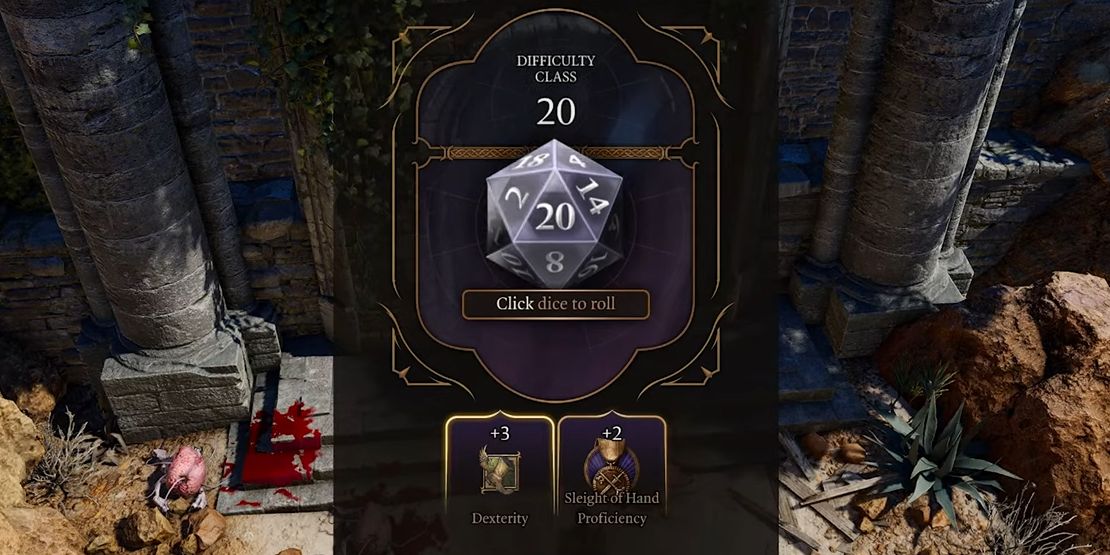When I first heard that Baldur’s Gate 3 was going to be so D&D-nerdy as to actually include visible dice rolls, I was a little bit wary. On the face of things, it seemed like a shameless layer of artifice over the RPG experience, perhaps bringing the game a step towards tabletop RPG immersion, but a step away from immersion immersion, where I’m trying to embody a character in this deep RPG experience. ‘Keep those clickety-clackety dice and their numbers off of my screen,’ the old me would’ve said.
And my, how wrong I was. Turns out I’m a dice-rolling addict (which makes sense, given that dice-rolling is one of the most ancient forms of gambling). Suddenly, there’s something so ‘vanilla’ about going back to, say, Fallout: New Vegas, and knowing that a conversation or a check will go your way before you’ve even done or said the thing that’s supposedly being checked. Even games where those checks are insta-calculated under the hood seem bland by comparison.
Give me the numbers, show me the machinations of the RNG gods. I’m all aboard for it. Now I just need to dig out my old Wii controller and convince someone smarter than myself to make a mod that lets you shake your controller to shake the dice myself, so that I can have some illusion of control over my rolls.
The age-old appeal of the dice roll reigns supreme, and those several seconds of animation and stripped-back sounds make for some of the game’s most suspenseful moments. I can feel myself leaning in towards the screen throughout those few seconds when the dice is rolling, glaring intensely as if doing so will somehow will the numbers I want on-screen into existence—a totally pointless but instinctive action like when your non-gaming pals tilt their controllers left and right when playing Mario Kart.
When the number lands and all those proficiency bonuses get added up, followed by the word Success unrolling on your screen like a golden fortune cookie message, it’s like the gods part the clouds and smile down at me from on high. You can keep your loot boxes and your sticker packs; this is where it’s at.
And when the numbers don’t go my way? Gah, GOD I hate it! I scoff, I turn to my partner and laugh disparagingly at the screen that I had successive shit rolls. But the frustration is all contained within the context of the game and over in seconds, because, ultimately, how can I argue with a dice roll? The randomness is right there in front of me, and barring the fact that it’s digital and therefore could be flawed, or that the game’s karmic dice system which actually cuts down on improbable losing or winning dice-roll streaks for both you and the enemy is somehow borked, it works exactly as it should.
My skepticism about the visible dice rolls has washed away. Some of the most significant moments in the game hinge on these rolls—characters live and die, sides get picked, stories branch—and in my mind I’ve translated those few seconds where the dice are rolling as the character I’m speaking to contemplating what I’ve said, my words rolling around in their mind before they come to a verdict that I have to face, for good or ill.
Even though I’m partial to a quickload when things go wrong (usually when I steal things from a merchant when I intended to talk to them), I never do it off the back of these visible dice moments. Rolling with the punches (and the dice), embracing the accompanying agony and ecstasy, has been a revelation to me, and a critical part of my journey with this very special game.



